Frustrated Republicans are now joking about Trump's health-care inconstancy
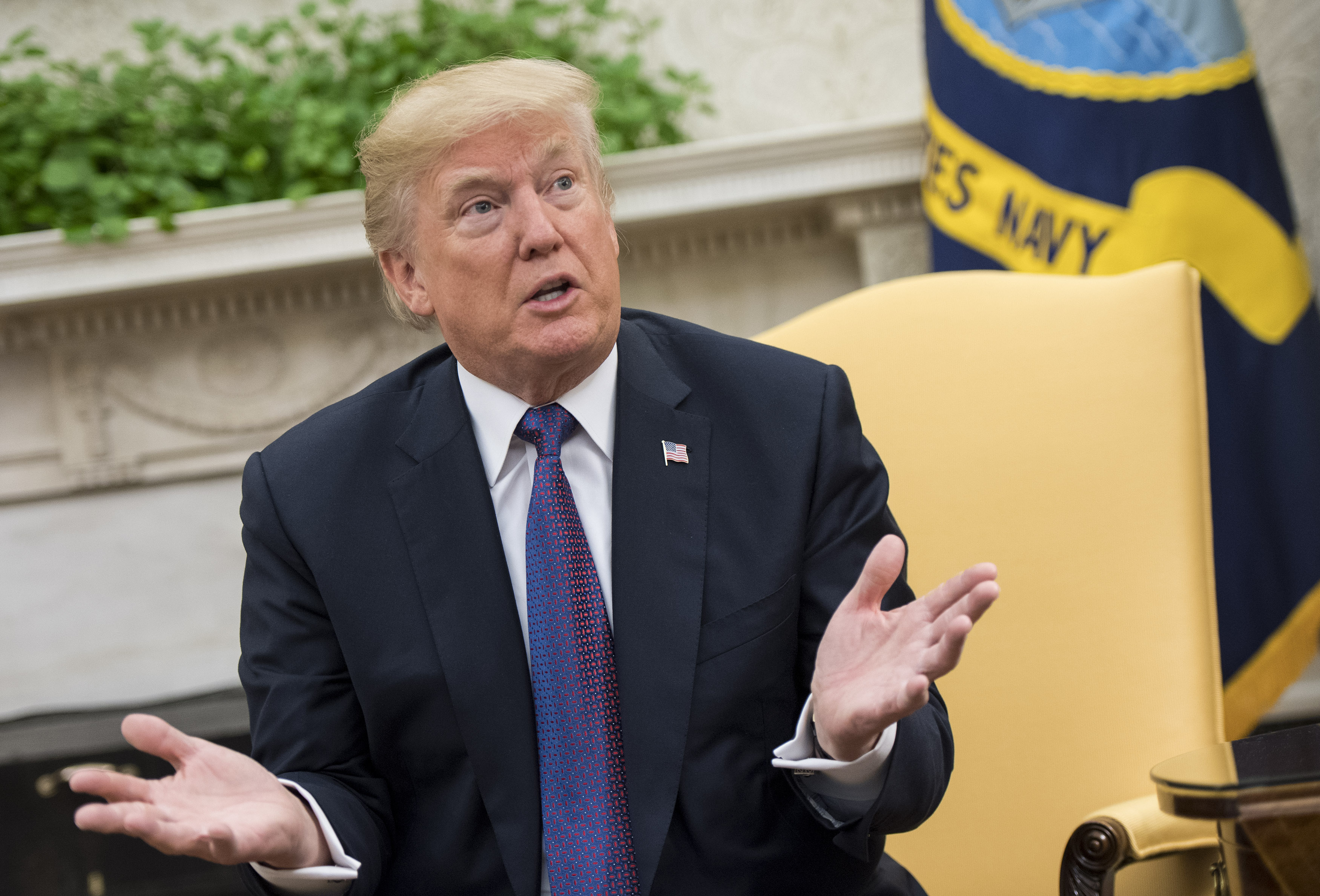

Keeping up with President Trump's stance on the bipartisan health-care bill that Sens. Lamar Alexander (R-Tenn.) and Patty Murray (D-Wash.) unveiled on Thursday, flanked by 11 Republican and 11 Democratic cosponsors, can be exhausting and frustrating. So Republicans have just started ignoring Trump's opinion, Caitlin Owens reports at Axios, and cracking jokes about Trump's policy inconstancy. Senate Minority Leader Chuck Schumer (D-N.Y.) said all 48 members of the Democratic caucus would support the bill, which would give it 60 yes votes if Republicans bring it up for a vote.
But if Trump objects, Republicans see a problem. If.
"Which one's he on now?" Sen. Johnny Isakson (R-Ga.) asked Owens when she brought up Trump's opinion of the bill. "In this town, at this time, change seems to be the norm," Sen. Pat Roberts (R-Kan.) said when asked about Trump's shifting opinion. "It is what it is. So we just work around it." A GOP lobbyist told Owens: "They just need to pass it during the 5 minutes he is supportive." Alexander and others suggest that the bill faces better odds as part of a year-end package of must-pass legislation rather than as a stand-alone bill.
Subscribe to The Week
Escape your echo chamber. Get the facts behind the news, plus analysis from multiple perspectives.

Sign up for The Week's Free Newsletters
From our morning news briefing to a weekly Good News Newsletter, get the best of The Week delivered directly to your inbox.
From our morning news briefing to a weekly Good News Newsletter, get the best of The Week delivered directly to your inbox.
Alexander-Murray aims to stabilize insurance markets by extending for two years the cost-sharing subsidies that insurers use to lower costs for low-income customers — Trump ended them last week — and makes it easier for states to get waivers on ObamaCare requirements.
A free daily email with the biggest news stories of the day – and the best features from TheWeek.com
Peter has worked as a news and culture writer and editor at The Week since the site's launch in 2008. He covers politics, world affairs, religion and cultural currents. His journalism career began as a copy editor at a financial newswire and has included editorial positions at The New York Times Magazine, Facts on File, and Oregon State University.
-
 Stereophonic: an 'extraordinary, electrifying odyssey'
Stereophonic: an 'extraordinary, electrifying odyssey'The Week Recommends David Adjmi's Broadway hit about a 1970s rock band struggling to record their second album comes to the West End
-
 Shifty: a 'kaleidoscopic' portrait of late 20th-century Britain
Shifty: a 'kaleidoscopic' portrait of late 20th-century BritainThe Week Recommends Adam Curtis' 'wickedly funny' documentary charts the country's decline using archive footage
-
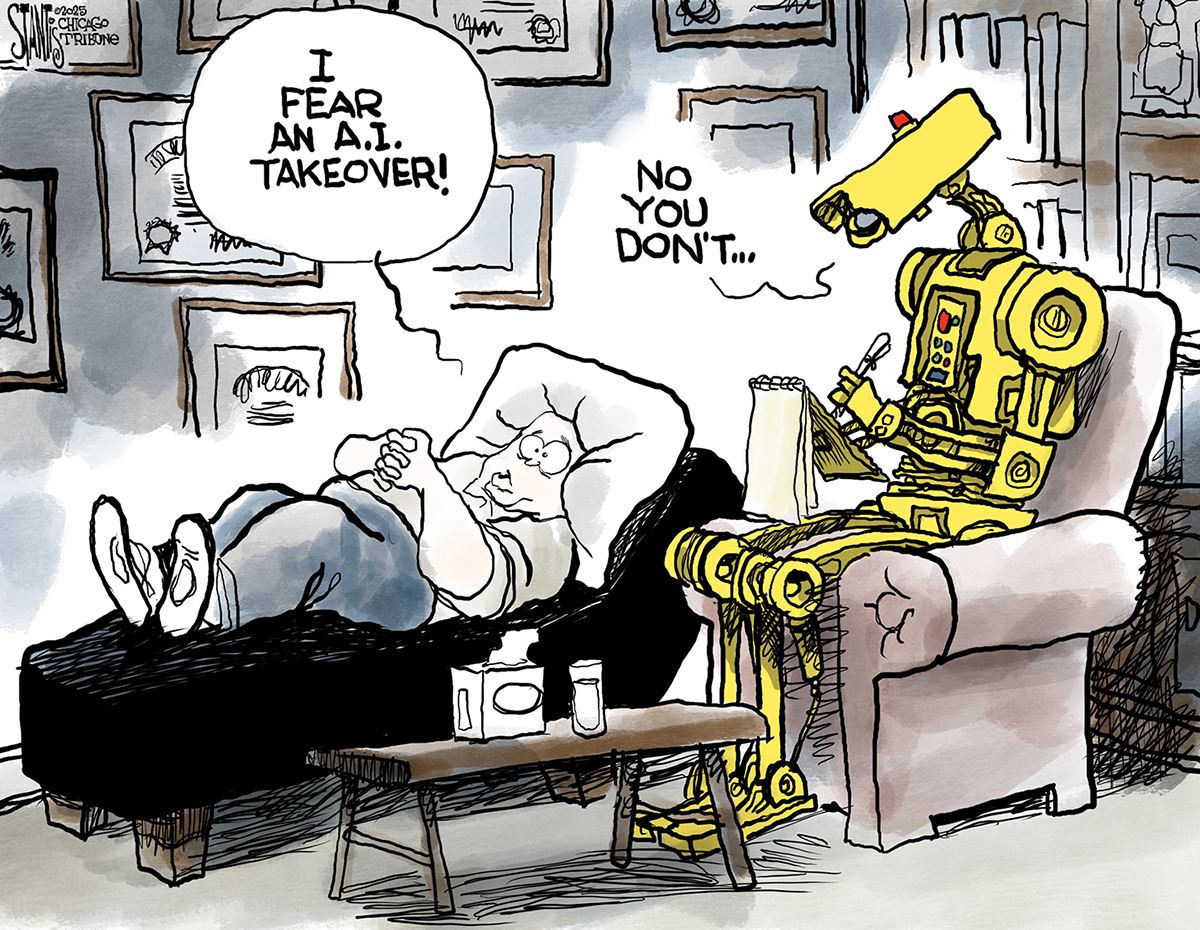 June 19 editorial cartoons
June 19 editorial cartoonsThursday’s political cartoons include a robot therapist and ICE-cold assault
-
 Kennedy ousts entire CDC vaccine advisory panel
Kennedy ousts entire CDC vaccine advisory panelspeed read Health Secretary RFK Jr. is a longtime anti-vaccine activist who has criticized the panel of experts
-
 RFK Jr. scraps Covid shots for pregnant women, kids
RFK Jr. scraps Covid shots for pregnant women, kidsSpeed Read The Health Secretary announced a policy change without informing CDC officials
-
 New FDA chiefs limit Covid-19 shots to elderly, sick
New FDA chiefs limit Covid-19 shots to elderly, sickspeed read The FDA set stricter approval standards for booster shots
-
 US overdose deaths plunged 27% last year
US overdose deaths plunged 27% last yearspeed read Drug overdose still 'remains the leading cause of death for Americans aged 18-44,' said the CDC
-
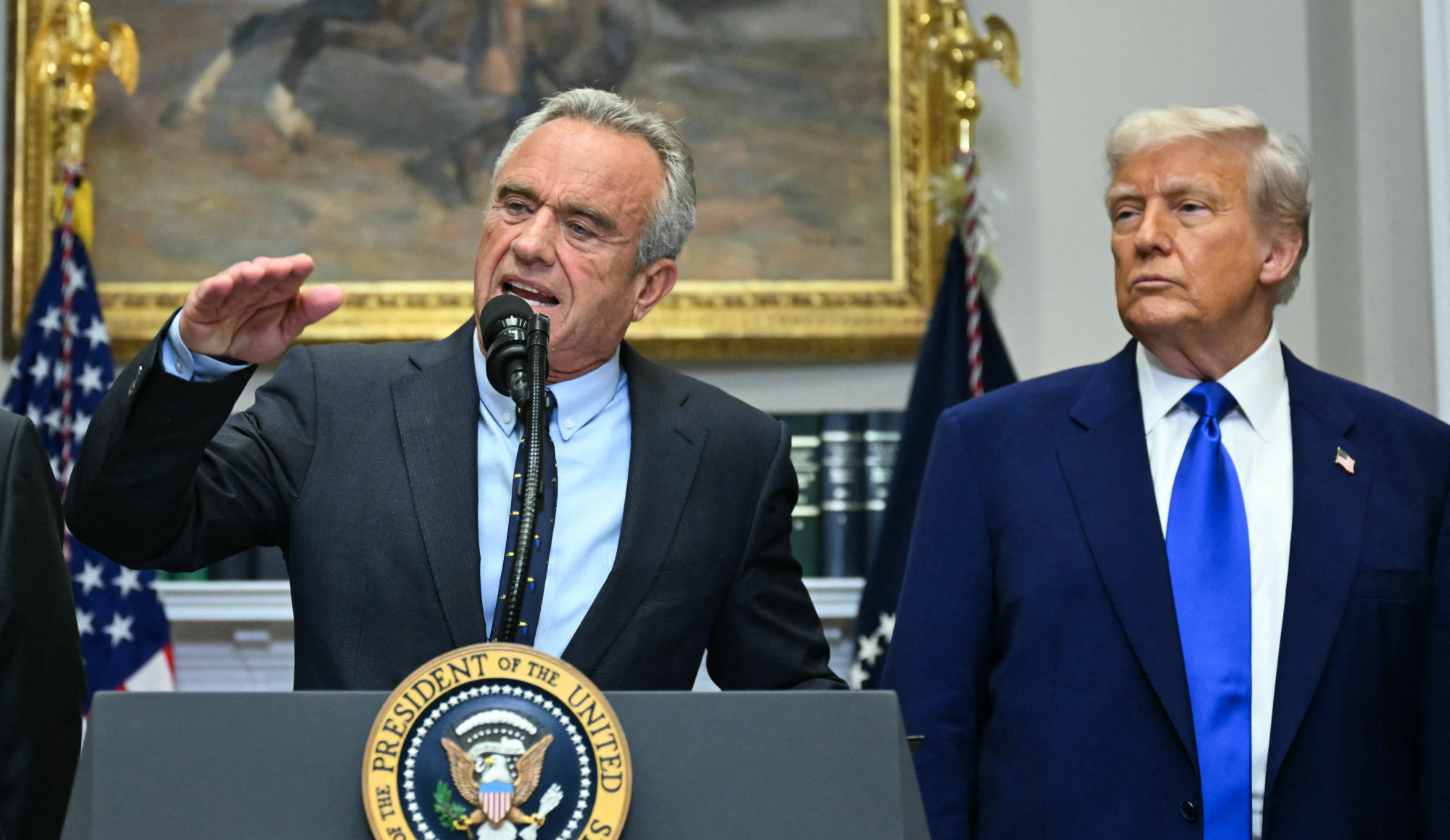 Trump seeks to cut drug prices via executive order
Trump seeks to cut drug prices via executive orderspeed read The president's order tells pharmaceutical companies to lower prescription drug prices, but it will likely be thrown out by the courts
-
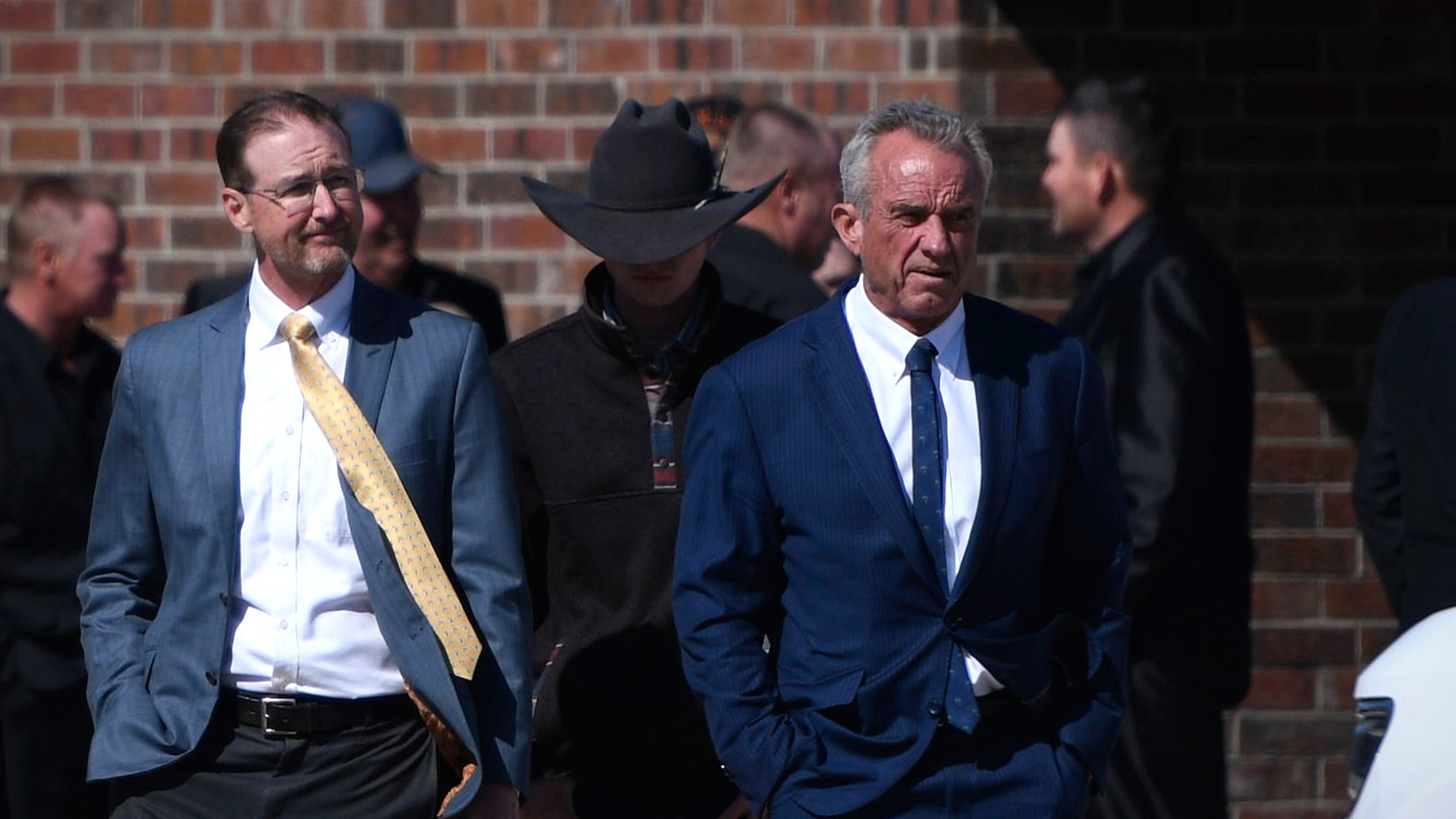 RFK Jr. visits Texas as 2nd child dies from measles
RFK Jr. visits Texas as 2nd child dies from measlesSpeed Read An outbreak of the vaccine-preventable disease continues to grow following a decade of no recorded US measles deaths
-
 Shingles vaccine cuts dementia risk, study finds
Shingles vaccine cuts dementia risk, study findsSpeed Read Getting vaccinated appears to significantly reduce the chances of developing Alzheimer's and other forms of dementia
-
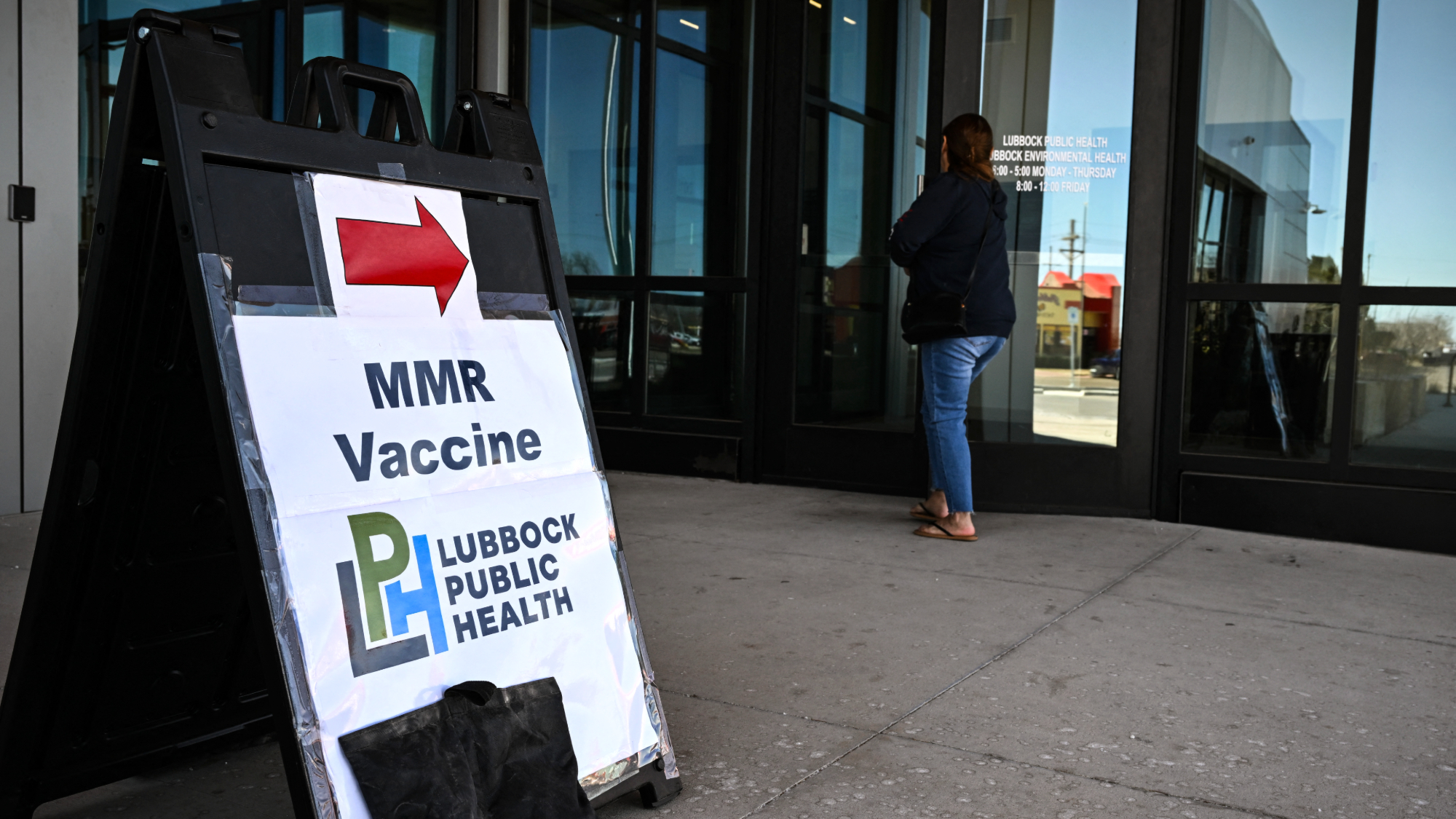 Measles outbreak spreads, as does RFK Jr.'s influence
Measles outbreak spreads, as does RFK Jr.'s influenceSpeed Read The outbreak centered in Texas has grown to at least three states and Health Secretary Robert F. Kennedy Jr. is promoting unproven treatments
